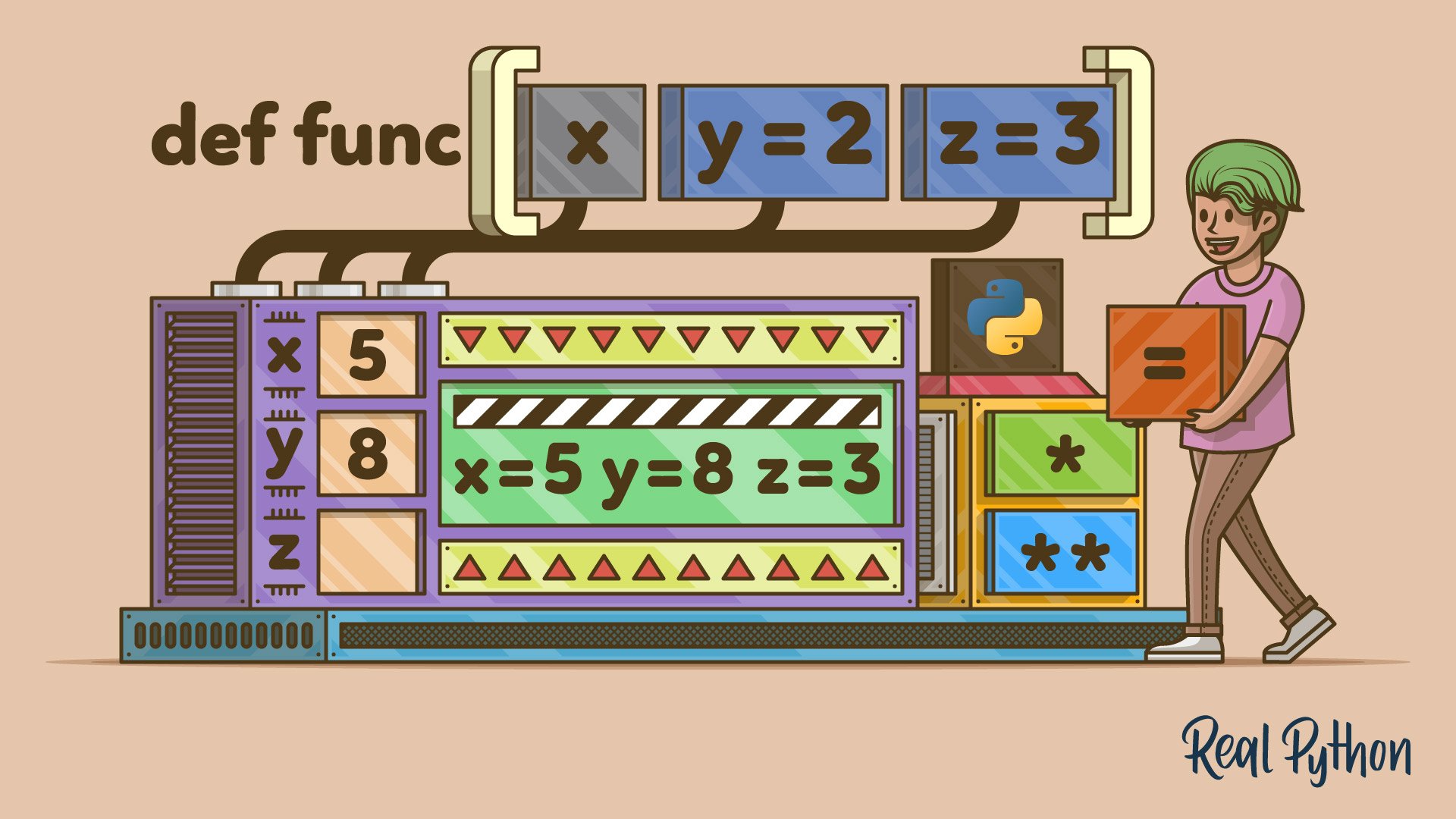Using Python Optional Arguments When Defining Functions Quiz
Interactive Quiz ⋅ 8 Questions
By Martin Breuss
You’ll revisit how Python handles parameters and arguments—from default values and their order to flexible patterns like *args and **kwargs. You’ll also see when a simple Boolean flag can make your function calls clearer and more expressive.
In this quiz, you’ll test your understanding of how mutable default argument values can lead to unexpected behavior. You’ll also practice unpacking sequences and mappings in function calls and formatting output with flags. For a deeper dive, check out the guide to optional arguments.
The quiz contains 8 questions and there is no time limit. You’ll get 1 point for each correct answer. At the end of the quiz, you’ll receive a total score. The maximum score is 100%. Good luck!
Related Resources
Course
Defining Python Functions With Optional Arguments
In this video course, you'll learn about Python optional arguments and how to define functions with default values. You'll also learn how to create functions that accept any number of arguments using args and kwargs.
Tutorial
Using Python Optional Arguments When Defining Functions
Learn to use Python's optional arguments to handle variable inputs. Build flexible functions and avoid common errors when setting defaults.

